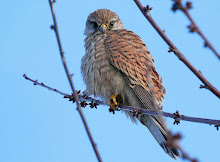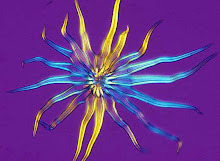Stinking hellebore Helleborus foetidus, malodorous but a wonderful source of pollen and nectar for the first bees to emerge in spring, started flowering in the garden last week. Its nectar is secreted into nectaries formed from small tubular petals inside those green sepals, and only accessible to long-tongued bumblebees that must hang under the bell-shaped flower to reach it. The specialised nectaries are more easily visible on open-flowered hellebores like ….
…… this non-native Helleborus argutifolius, also flowering now. The petal/nectaries are the ring of dark green structures tucked in behind the stamens.
Hellebores, which are poisonous, have a somewhat gruesome history in folk
medicine, as a vermifuge: “Where it killed not the patient, it would certainly
kill the worms; but the worst of it is, it would sometimes kill both” noted
Gilbert White in 1779, in The Natural History of Selborne.






.jpg)























